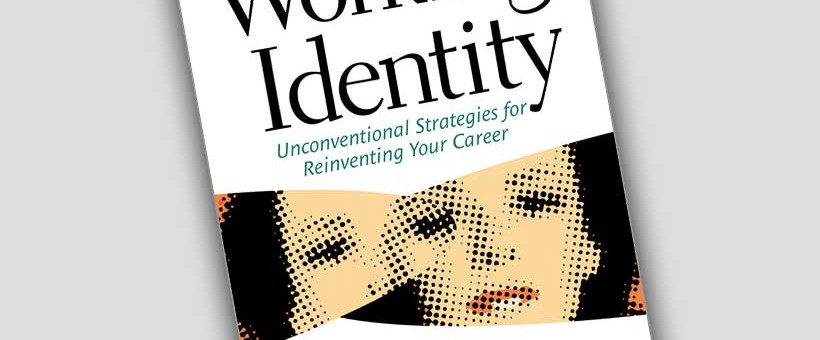
Review of ‘Working Identity’ by Herminia Ibarra
- Posted by Liz Gooster
- 0 Comments
- career change, coaching book review, herminia ibarra, identity, mid career transition, working identity
I’d wanted to read Herminia Ibarra’s Working Identity for a long time. It was first published in 2004 and was widely reviewed – and praised – in the business press. I’d even met the author once, on a book commissioning trip to INSEAD, where Ibarra is Professor of Organizational Behaviour. So I was excited to see it on the list of assigned reading for my Meyler Campbell coaching course.
The book addresses the core question of ‘how do people change careers?’. Its answer reveals that the conventional wisdom of successful career changes occurring after an intense period of structured self-reflection, introspection and planning, such that people know what they want to do, and then go and do it, is misplaced. ‘Our working identity is not a hidden treasure waiting to be discovered at the inner core of our being’ so it cannot be known purely through thinking and soul-searching. Rather it is made up of many possibilities, which we need to try out by doing. In effect, changing careers means changing identities, and you cannot wholly know your new identity in advance. Conceiving of career transition in this way helps explain why changing job can affect people so profoundly – and also why it can be such a long and difficult process.
Ibarra charges us to ‘devote the greater part of our time and energy to action rather than reflection, to doing instead of planning.’ She uses her deep insights into how people really change their careers (and their lives) to structure the book around eight common practices, or what she terms ‘unconventional strategies’. These include taking small steps; seeking out new networks and role modes; ‘trying out’ new activities alongside your current career; flirting with different ‘possible selves’; and allowing for uncertainty, contradictions and indecision as necessary parts of any shift in career and working identity.
This is a sharp change of perspective from the standard view of career change as structured, planned and goal-oriented. It has far-reaching implications for anyone undergoing – or itching to undergo – a career shift themselves, and for anyone coaching them. If you’re going through a period of uncertainty about where you see your future career developing, Working Identity offers insights into the process that will surely cast a clarifying light on your experience and provide reassurance that what may seem to be an unfocused, trying and lengthy period of uncertainty is in fact a normal and indeed, necessary, journey. It gives an analytic yet at the same time empathetic framework that business coaches will find helpful in working with and understanding clients at this juncture of their lives and careers
Working Identity is tricky to classify. It’s an easy and engaging read, and its smooth flow effortlessly melds business, psychological and anthropological approaches. We are immersed in the stories of 39 people who have reinvented themselves through undergoing career transitions, usually over a period of several years. We absorb understanding through listening to their experience. The case studies are fascinating in themselves. And because of the wide array of industries and roles they represent, I suspect most readers will find someone whose career path resonates with their own. I felt a strong connection with Brenda, a publishing professional, for instance.
Books that rely heavily on individual narratives can be interesting at the time of reading but leave little of substance behind, rather like an ice cream that briefly titillates our taste buds but is forgotten almost as soon as we’ve eaten it. Working Identity has much more to offer. Founded on rigorous research and presenting a wise, perceptive framework of the true feelings, actions and pathways of career transition, it’s a full and satisfying meal rather than a fluffy snack.
If you liked this, you might also like:
- My review of Ibarra’s latest book, Act Like a Leader, Think Like a Leader

I like to describe myself as happily ‘At Large’ in an independent portfolio career, balancing coaching, leadership development, coach training and being a mum to my young daughter. Positive psychology is a big influence on my work and I’ve recently gained an MSc in Applied Positive Psychology & Coaching Psychology from the University of East London. My interests include reading, writing, travel, yoga, Zumba, coffee and wine! Connect with me on LinkedIn and sign up for my newsletter, Positive Intentions.



0 Comments